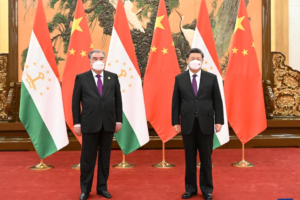Conversations around mental health are gathering momentum. People with mental health issues are gradually coming out in the open. But is India Inc really embracing mental health challenges of its employees and stakeholders? Not really, says Marico chairman, Harsh Mariwala. The entrepreneur-turned philanthropist who runs the Mariwala Health Initiative (MHI), urges leaders of corporate India to urgently look into the mental and emotional well-being of employees.
“Most corporates are taking mental health lightly and it is costing the organisation hugely. If I am suffering from a mental health issue, it will impact my productivity and that will eventually impact the productivity of the organisation. Leaders need to realise that this is a serious issue.”
India accounts for nearly 15% of the world’s mental health concerns, says a Deloitte report. However, conversations around mental health have been shrouded in taboo and a lack of awareness. This has contributed to a wide treatment gap, with increased time to access resources or treatments. According to the World Health Organisation (WHO), depression and anxiety costs the global economy $1 trillion each year predominantly from reduced productivity.
Workplace, according to Deloitte’s Mental Health in the Workspace study, is among the biggest contributors to mental health challenges in India. Over 47% of its respondents have said they have been experiencing stress at their respective workplace. The Deloitte report also says while organisations have started recognising mental health concerns as a challenge few have formal mental health policy. Most of them have third party employee assistance programmes, but unlike the formal and multi-layered approach to physical health interventions for the workforce, there is a lack of a well-designed system for mental health interventions at an organisational level.
Mariwala says that tying up with a few helplines where employees can share their concerns isn’t enough. There needs to be a systemic change. The root-cause of most workplace-related stress is politicking and back-biting and one needs to address those issues. “Growth in an organisation should not be based on influence. One shouldn’t pamper egos to grow, organisations should create an environment of trust and openness.”
The MHI has recently come up with a check-list for corporates for workplace mental health. Apart from that the Foundation has been involved in mental health advocacy with the state governments of Delhi, Bihar, Kerala and Goa. “When we speak to governments, we tell them how to include mental health in their existing programmes.
In Goa we are working with the disability commissioner and we did three rounds of focus group discussions with persons with disabilities, their parents or caregivers. We are trying to build a roadmap ahead. With the Delhi Commission For Women, we are incorporating mental health into their various community health programmes. We are training community workers on how to have a conversation on mental health, how to give sessions on mental health,” Mariwala explains.
Mariwala says he opted to support mental health as opposed to other causes because of the lack of awareness the segment suffered from. However, his style of giving isn’t to sign cheques or make one-off grants. “If I have to do proactive giving, I should select a topic which is dear to me which I can understand. I never support a hospital or college.” Mariwala has chosen to invest in capacity building through which MHI is formulating training curriculums for health professionals.
A key element of his strategy is to identify mental health projects, fund them as well as help them with day-to-day operations. “I have resources at a personal and organisation level. If I am making a grant to iCALL (a mental health helpline), depending on their needs we support the organisation in a variety of ways,” Mariwala explains. MHI is currently partnering with 46 mental health organisations/NGOs.
Source: Fortune India
















